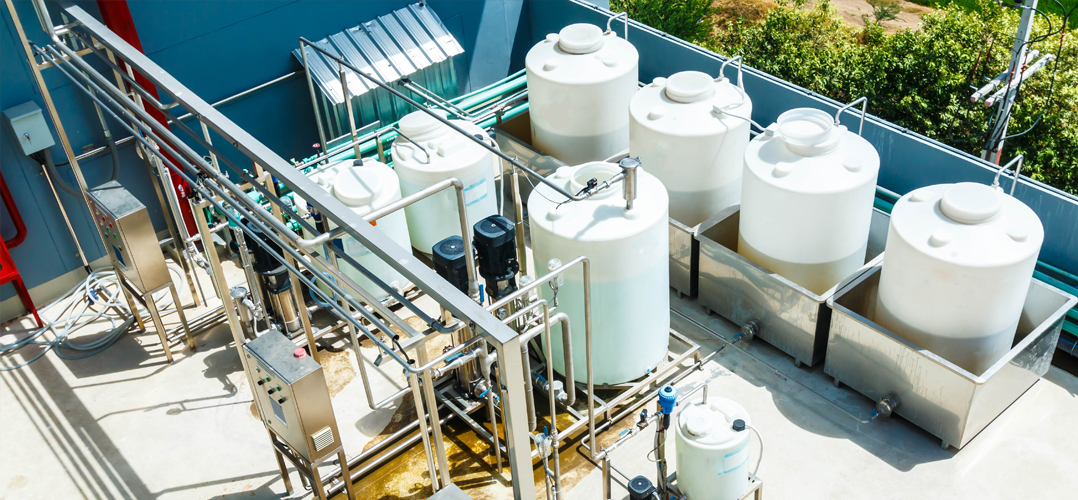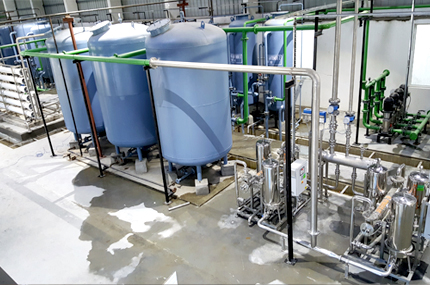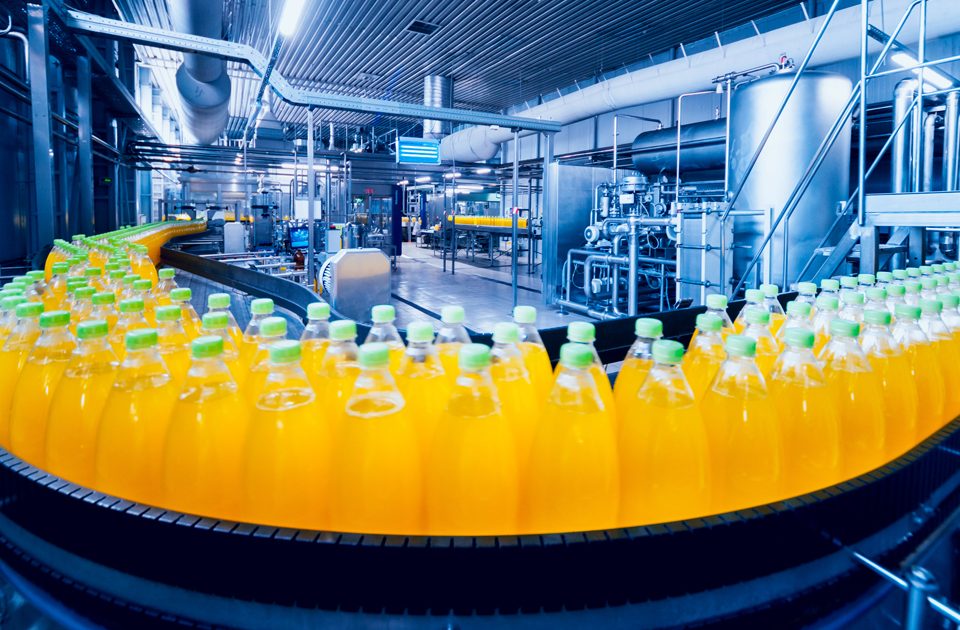
From Waste to Resource: The Role of Effluent Treatment Plants in Recycling Water
June 9, 2025
Emerging Trends in Water Treatment Technology for 2024 and Beyond
June 9, 2025Eco-Friendly Water Purification Solutions: How to Purify Water Without Harming the Environment
Welcome to a world where eco-consciousness meets water purification! In a time when environmental sustainability is more important than ever, finding ways to purify water without harming the planet is crucial. Join us on a journey through innovative and eco-friendly water purification solutions that not only ensure clean drinking water but also protect our precious ecosystems. Let’s dive in and explore how you can make a difference by choosing sustainable methods to quench your thirst for pure, crystal-clear water.
The Importance of Water Purification
Water purification plays a vital role in safeguarding public health by removing harmful contaminants and pathogens from water sources. Access to clean water is essential for hydration, sanitation, and overall well-being. Without proper purification, waterborne diseases can spread rapidly, posing serious risks to communities worldwide.
In addition to human consumption, purified water is crucial for various industrial processes, agriculture, and ecosystem preservation. By purifying water effectively, we can protect aquatic life and ensure sustainable use of this precious resource for future generations. Water purification also contributes to reducing plastic waste generated by single-use bottled water products.
Understanding the importance of water purification empowers individuals and communities to make informed choices that promote environmental sustainability and human health.
Traditional Water Purification Methods and Their Impact on the Environment
Traditional water purification methods have long been used to make water safe for drinking, but they often come with environmental drawbacks. One common method is chlorine treatment, which can create harmful byproducts that end up in the environment. Another traditional method involves adding chemicals like alum to remove impurities, leading to potential contamination of water sources.
Boiling water is a simple yet effective way to purify it, but this process consumes energy and contributes to greenhouse gas emissions. Filtration through sand or gravel can help remove particles from water, but the maintenance of these systems can be resource-intensive and impact local ecosystems.
While traditional purification methods have their benefits in providing clean drinking water, their impact on the environment cannot be ignored. It’s important to explore eco-friendly alternatives that minimize harm to our planet while ensuring access to safe and clean water for all.
Eco-Friendly Water Purification Solutions
Water purification is essential for ensuring access to clean and safe drinking water. While traditional methods have often come at the cost of harming the environment, there are now eco-friendly solutions available that allow us to purify water without causing further damage.
One such solution is UV water purification systems, which use ultraviolet light to kill bacteria and other harmful microorganisms in water without using any chemicals. This method is effective and environmentally friendly, making it a popular choice for many households and businesses looking to reduce their impact on the planet.
Another eco-friendly option is reverse osmosis filtration, which utilizes a semipermeable membrane to remove impurities from water. By filtering out contaminants at a molecular level, this system produces clean drinking water while minimizing waste compared to traditional filtration methods.
Activated carbon filters are also an excellent choice for those seeking eco-friendly water purification solutions. These filters work by adsorbing pollutants onto their surface, effectively removing chlorine, pesticides, and other harmful substances from the water without releasing any toxins back into the environment.
By incorporating these eco-friendly purification methods into our daily lives, we can help protect our planet’s precious resources while ensuring access to clean and safe drinking water for generations to come.
A. UV Water Purification Systems
UV water purification systems utilize ultraviolet light to kill bacteria and viruses in water without the need for chemicals. This eco-friendly method is effective in eliminating harmful microbes that can cause illnesses. The UV light damages the DNA of these microorganisms, rendering them unable to reproduce or cause harm.
One of the key benefits of UV water purification is that it doesn’t alter the taste or smell of water, unlike some traditional methods like chlorination. Additionally, UV systems are low maintenance and energy-efficient, making them a sustainable choice for purifying water.
When considering an eco-friendly water purification solution, UV systems stand out for their ability to provide clean and safe drinking water without harming the environment. By harnessing the power of ultraviolet light, these systems offer a chemical-free way to ensure your water is free from contaminants.
B. Reverse Osmosis Filtration
Reverse Osmosis Filtration is a cutting-edge water purification method that uses a semi-permeable membrane to remove impurities from water. This process effectively filters out contaminants such as lead, chlorine, and bacteria, ensuring you have access to clean and safe drinking water.
Unlike traditional purification methods that rely on chemicals or excessive energy consumption, Reverse Osmosis systems operate using hydraulic pressure. This eco-friendly approach minimizes the environmental impact while delivering high-quality purified water for your household.
Investing in a Reverse Osmosis Filtration system can significantly reduce the use of single-use plastic bottles, contributing to less plastic waste polluting our oceans and landfills. By choosing this sustainable solution, you not only prioritize your health but also take a step towards protecting the environment for future generations.
Consider installing a Reverse Osmosis Filtration system in your home to enjoy the benefits of clean and environmentally friendly drinking water every day!
C. Activated Carbon Filters
Activated carbon filters are a popular eco-friendly water purification solution that effectively removes impurities and contaminants from drinking water. These filters work by trapping pollutants in the tiny pores of the activated carbon material, resulting in cleaner and safer water for consumption.
One of the key benefits of activated carbon filters is their ability to remove chlorine, volatile organic compounds (VOCs), and other chemicals commonly found in tap water. This process not only improves the taste and odor of the water but also enhances its overall quality.
Additionally, activated carbon filters are known for being cost-effective and easy to maintain. By regularly replacing the filter cartridges as recommended by the manufacturer, you can ensure optimal performance and efficiency over time.
When choosing an activated carbon filter system, be sure to consider factors such as your household’s water usage, filtration capacity requirements, and any specific contaminants present in your local water supply. With proper installation and maintenance, activated carbon filters can provide a sustainable solution for purifying your drinking water while minimizing harm to the environment.
DIY Eco-Friendly Water Purification Methods
Looking for simple and eco-friendly ways to purify water at home? DIY methods might be the perfect solution for you. One popular method involves using solar stills, which utilize the heat from the sun to evaporate water and collect it as clean condensation.
Another DIY option is building a biosand filter, an effective and affordable way to remove impurities from water by passing it through layers of sand and gravel. Additionally, boiling water is a classic purification technique that can easily be done using basic kitchen equipment.
For those interested in a more hands-on approach, constructing a homemade ceramic water filter can also be a practical way to remove harmful bacteria and pathogens from drinking water. These inexpensive DIY projects not only help you achieve clean drinking water but also contribute to reducing your environmental footprint.
Tips for Conserving Water and Reducing Your Environmental Impact
Water is a precious resource that should be used wisely. By implementing simple tips, you can contribute to water conservation efforts and reduce your environmental impact.
One easy way to conserve water is by fixing any leaks in your home promptly. A dripping faucet may seem minor, but it can waste gallons of water over time. Another tip is to take shorter showers and turn off the tap while brushing your teeth or washing dishes.
Consider installing low-flow fixtures in your home to reduce water usage without sacrificing performance. Additionally, collecting rainwater for outdoor use in gardens or landscapes can help offset the need for treated water.
Being mindful of how much water you use daily and making small changes can collectively make a significant difference in preserving this vital resource for future generations.
Choosing the Right Eco-Friendly Water Purification System for Your Needs
When it comes to selecting an eco-friendly water purification system, consider factors such as your water source, budget, and maintenance requirements. UV water purification systems are effective against bacteria and viruses but may not remove other contaminants. Reverse osmosis filtration provides thorough purification but wastes some water in the process. Activated carbon filters are excellent for removing impurities and improving taste.
For a more hands-on approach, DIY methods like boiling or using ceramic filters can be sustainable options. Remember to also implement water conservation practices to reduce your overall environmental impact.
Finding the right eco-friendly water purification solution is about balancing effectiveness with sustainability. By choosing a method that aligns with your needs and values, you can enjoy clean drinking water without harming the environment. Stay informed, stay conscious, and make a positive difference with every glass of purified water you drink!

